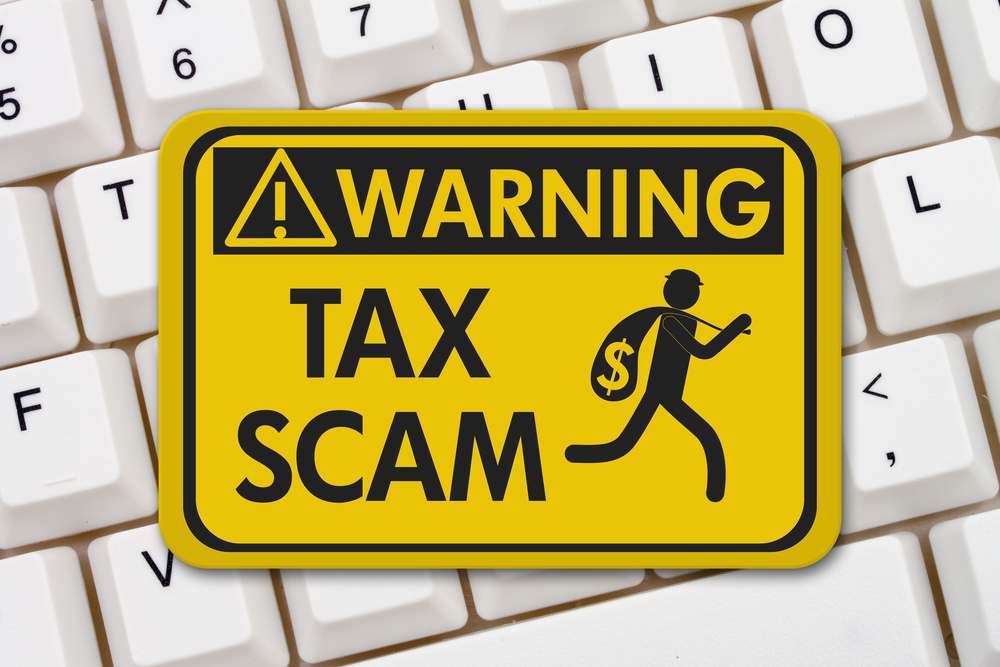The New Year can be a busy time—for you, and for identity thieves. As we enter tax season, many criminals will ramp up their activity levels, stealing personal identifying information in time to file a false tax return in your name. This allows them to collect a refund on your behalf, leaving you with a big mess to clean up. It’s extremely important that you take extra steps to protect yourself from identity theft during tax season. Here are a few tips to help you avoid being another victim.
Know How to Recognize a Scam
Tax scams proliferate at this time of year, and odds are high that you’ll get many phone calls and emails from individuals claiming to be from the IRS and attempting to trick you into giving up your identifying information. These are all scams! How do we know? It’s quite simple: The IRS will never initiate contact with you via phone, text, email, or social media. All IRS communications are instigated via mail, with a letter prompting you to call them. If someone contacts you in another way, without you having first reached out to the IRS yourself, then they are a thief attempting to take your information.
This includes phone calls stating that you owe taxes to the IRS. This is a common scare tactic used by scammers in an attempt to frighten you into making an immediate payment. If you have never been notified of a tax debt via mail before, hang up the phone now. If you receive an email claiming to be from the IRS, do not open any attachments or click on any links, even if the URL looks legitimate. This could infect your computer with a virus or data-stealing software. Forward the email to phishing@irs.gov and delete it.
As a reminder, the IRS will never:
- Initiate contact with you via any method besides mail.
- Demand immediate payment over the phone without offering you other payment options.
- Ask for unusual forms of payment, like gift cards or wire transfers.
- Leave prerecorded voicemails.
- Threaten to arrest you, suspend your SSN, or revoke your driver’s license, business licenses, or immigration status.
All of these are tactics used by scammers. Learn to recognize them to help protect yourself from becoming their next victim.
Make Sure Your Mail Is Secure
Going into tax season, you’ll be receiving a number of tax-related documents that include sensitive, identifying information. If you have a curbside mailbox that anyone can open, this is an easy way for identity thieves to steal your data. Consider a locking mailbox or, if this is not an option, do your best to collect your mail shortly after delivery to minimize the odds of your tax documents being stolen. You can also ask that your statements be sent to a more secure location, like a P.O. Box, instead of your home address.
Handle Your Paperwork Securely
Once you have those tax documents in hand, it’s important that you handle them in a manner that keeps all of your data secure—even after you’re done filing your taxes. Keep relevant tax documents in a secure place, such as a locking file cabinet or a safe inside your home. If you’re disposing of your old tax forms, past tax returns, or drafts of your tax return, make sure that you shred all of the paperwork before tossing it out. Identity thieves are not above sorting through your recycling bin to find identifying information that they can use next tax season.
Use an IP PIN
If your information does end up in the wrong hands, the best way to protect yourself from having a false tax return filed in your name is to sign up for the IRS’s IP PIN program. This program assigns you a unique IP PIN (identity protection personal identification number) every year. If you’re signed up for the IP PIN program, the IRS will not accept any tax return filed in your name that does not include the correct PIN. This is a fast way to put a stop to this common tax scam and protect yourself from becoming a victim of this form of identity theft.
At Peter Witts CPA, we put the utmost care into ensuring the security of our clients’ information. If you have any questions about our security protocols, or if you need assistance signing up for the IRS’s IP PIN program, contact our CPAs today.

